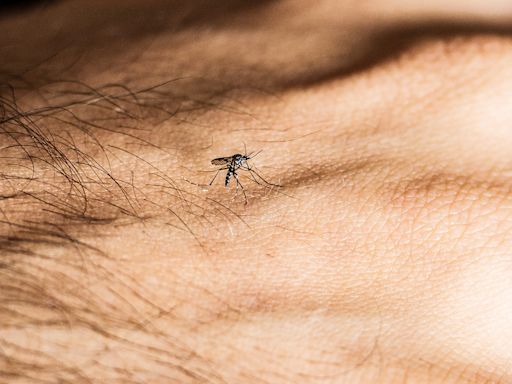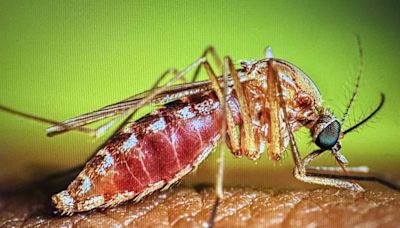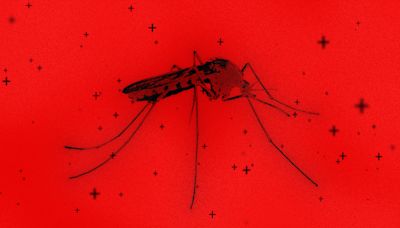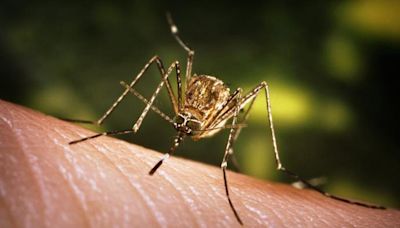Ads
related to: prevention of dengue feverFrom uncut lateral flow sheets to high-performing Dengue antibodies & antigens. Learn More. A Complete Range of Raw Materials for Immunological Assay Manufacturers. Request a Sample.
- Dengue Virus Antibody
Tropical & Vector-Borne Disease
Antibodies: Find Your Match for ...
- Quick Educational Videos
Engaging Video Resources to Help
Accelerate Your Work. Watch Now.
- About Meridian Bioscience
Learn More About Our Mission And
What Sets Us Apart.
- Huge Selection Available
Explore Meridian's High-Performing
Enzymes that Elevate Your Assay ...
- Order Online
Reduce Non-Specific Binding And
Other Interference That Can ...
- Nucleotides
Molecular Reagents for Nucleotides.
Learn More About Our Products.
- Dengue Virus Antibody
amazon.com has been visited by 1M+ users in the past month
Read Customer Reviews & Find Best Sellers. Free, Easy Returns On Millions Of Items. Shop Alternative Medicine Products, Feminine Care, First Aid Supplies and More.
Search results
May 14, 2024 · Follow steps to prevent mosquito bites to protect yourself and your family. Stay in places with air conditioning and with window/door screens. Use a bed net if air conditioned or screened rooms are not available or if sleeping outdoors. See a healthcare provider if you develop a fever or have symptoms of dengue.
- Dengue Vaccine
A dengue vaccine provides your child with safe, effective,...
- About Dengue
Prevention. The best way to prevent dengue is to avoid...
- Chikungunya
The most common symptoms of chikungunya are fever and joint...
- Manage Dengue
Key points. There is no specific medicine to treat dengue....
- Dengue
About dengue prevention, dengue vaccine, and mosquito bite...
- Dengue Vaccine
- Overview
- Symptoms
- Pictures
- Treatment
- Causes
- Risk factors and areas of high risk
- Diagnosis
- Prevention
- Summary
Dengue fever, or breakbone fever, results from a viral infection carried by Aedes mosquitoes. Symptoms include a high fever and body aches. Severe dengue can involve shock and hemorrhagic fever. It can be life-threatening and needs urgent medical treatment.
Four different viruses can cause dengue fever.
Symptoms range of dengue fever from mild to severe. Severe symptoms can indicate dengue shock syndrome (DSS) and dengue hemorrhagic fever (DHF). These require urgent medical attention.
In 2019, the Food and Drug Administration (FDA) approved a vaccine for children ages 9–16 years who have had dengue in the past and live in areas where dengue is common. These areas include some United States territories.
For most people, the best way to prevent dengue fever is to take steps to avoid mosquito bites.
There is no cure for dengue fever. However, early recognition and treatment can help manage symptoms and prevent fatalities.
Mild symptoms
If symptoms occur, there may be a sudden fever of around 104°F (40°C) with one or more of the following: •aching muscles and joints •rash •pain behind the eyes •nausea and vomiting •facial flushing •sore throat •headache •red eyes The symptoms typically last between 2–7 days, and most people feel better after one week. The fever may spike, go away for 24 hours, then spike again.
Severe symptoms
Between 0.5% and 5% of cases of dengue fever become severe. If this happens, it can be life threatening. First, the fever typically falls to 99.5 to 100.4°F (37.5 to 38°C). Severe symptoms may then appear 24–48 hours later, or around 3–7 days after the person starts to feel unwell. They include: •abdominal pain or tenderness •vomiting at least three times in 24 hours •bleeding from the nose or gums •vomiting blood •blood in the stool •fatigue •feeling restless or irritable •changes in temperature from very hot to very cold •cold, clammy skin •a weak and rapid pulse •a reduced difference between systolic and diastolic blood pressure Anyone with severe symptoms needs immediate medical attention. Severe signs and symptoms can indicate DSS or DHF. They are potentially fatal.
Here are some images that may help identify dengue fever.
Treatment for dengue involves managing the symptoms.
According to 2009 research, treatment for milder forms includes:
•drinking water to help prevent dehydration
•getting plenty of rest
•using pain relief, such as Tylenol or paracetamol, which can also help reduce fever
Nonsteroidal anti-inflammatory drugs such as aspirin or ibuprofen are not suitable as they can increase the risk of internal bleeding.
Four viruses can cause dengue fever. They are all transmitted either by the Aedes aegypti mosquito or, more rarely, the Aedes albopictus mosquito.
These species of mosquitoes live in tropical and subtropical areas around the world, including parts of the U.S. Rates of infection have grown in recent decades, especially in urban areas.
A mosquito carrying the virus passes it to a human by biting them. When another mosquito bites a person with the condition, it will pick up the condition. Then the mosquito will pass the virus on to the next person it bites.
A person can have dengue fever more than once. They will become immune to the specific virus that caused it, though they will not be immune to the other three viruses.
A person is at risk of dengue fever if they live or travel in an area where dengue occurs and mosquitoes that can carry it live.
Dengue occurs in over 100 countries across:
•North and South America
•South-East Asia
•the Pacific Islands
•Australia
The signs and symptoms of dengue fever are similar to some other diseases such as influenza and malaria. This can make diagnosis challenging.
A doctor will most likely:
•assess the symptoms
•ask about the person’s medical and travel history
In May 2019, the FDA approved the first dengue vaccine. It can prevent dengue caused by all four viruses.
It is for people who:
•are ages 9–16 years
•have had dengue in the past
•live in areas where dengue is common, including Puerto Rico, American Samoa, Guam, and the U.S. Virgin Islands
People who are not eligible for the vaccine can lower their risk by taking steps to avoid mosquito bites.
Mosquitoes spread the virus that causes dengue fever. Most people do not experience symptoms. However, if they do, the symptoms are often mild. In some cases, dengue fever can be life threatening.
Symptoms include fever, aches and pains, and a rash. A person with more severe symptoms may start vomiting persistently, or experience bleeding from their gums or nose, among other symptoms. Severe dengue needs immediate medical attention.
Apr 23, 2024 · Prevention and control of dengue depend on vector control. There is no specific treatment for dengue/severe dengue, and early detection and access to proper medical care greatly lower fatality rates of severe dengue. Overview. Dengue (break-bone fever) is a viral infection that spreads from mosquitoes to people.
Oct 5, 2022 · For now, in areas where dengue fever is common, the best ways to prevent infection are to avoid being bitten by mosquitoes and to take steps to reduce the mosquito population. Symptoms. Many people experience no signs or symptoms of a dengue infection.
May 18, 2022 · Clinical Studies. Help Us Make Better Dengue Vaccines. By taking part in our research study, you can help us make better dengue vaccines that may be used to prevent the virus. To learn about risk factors for dengue fever and current prevention and treatment strategies visit the MedlinePlus dengue site. Content last reviewed on April 30, 2024.
Ads
related to: prevention of dengue feverFrom uncut lateral flow sheets to high-performing Dengue antibodies & antigens. Learn More. A Complete Range of Raw Materials for Immunological Assay Manufacturers. Request a Sample.
amazon.com has been visited by 1M+ users in the past month
Read Customer Reviews & Find Best Sellers. Free, Easy Returns On Millions Of Items. Shop Alternative Medicine Products, Feminine Care, First Aid Supplies and More.





